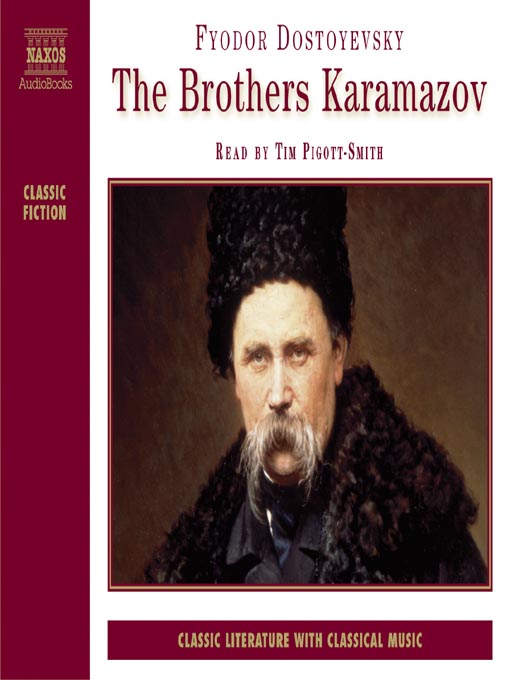
The Brothers Karamazov
فرمت کتاب
audiobook
تاریخ انتشار
2004
Reading Level
9-12
نویسنده
Tim Pigott-Smithناشر
Naxos AudioBooksشابک
9789629545048
کتاب های مرتبط
- اطلاعات
- نقد و بررسی
- دیدگاه کاربران
نقد و بررسی

Three brothers, a difficult estranged father, murder, love, hate, goodness, and evil--Dostoyevsky's classic has it all. Most of all, it has Tim Pigott-Smith reading. The veteran British actor and audiobook reader offers a nuanced narration in a pleasant baritone that pitches with excitement when the action explodes and paces evenly when the story calms. It's an intelligent reading by an actor who seems to know the story intimately--no miss-paced phrasing, no character confusion. Speaking of characters, the voices of the central personalities, including the women, are distinct, believable, and revealing. Musical interludes by Scriabin and Borodin are a mood-enhancing plus, and the booklet with the detailed track listing is a model that other producers should follow. Simply lovely. A.C.S. Winner of AudioFile Earphones Award (c) AudioFile 2005, Portland, Maine

September 30, 2013
The depth, complexity, and length of what many consider to be Dostoyevski’s best work make it one of the hardest classic novels to bring to audio. The philosophical novel/murder mystery set in 19th-century Russia requires a strong and versatile narrator to keep listeners going for the day-and-a-half-plus duration. Thankfully, narrator Constantine Gregory masters the challenge. In doing so, he manages the omniscient third-person narration by using a pleasant mellifluous tone that invites the listener to relax and approach the text patiently and carefully. The novel also features first-person voices from the large cast of characters, such as Father Zosima, who, naturally enough, argues for the existence of a higher power—and Gregory is able to imbue those sections with enough individuality to make them as distinct as the author intended.

























دیدگاه کاربران